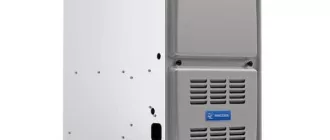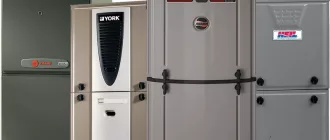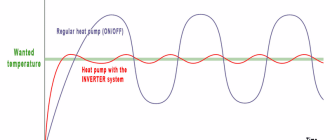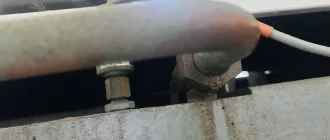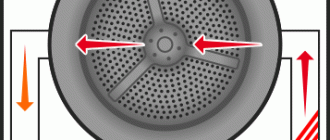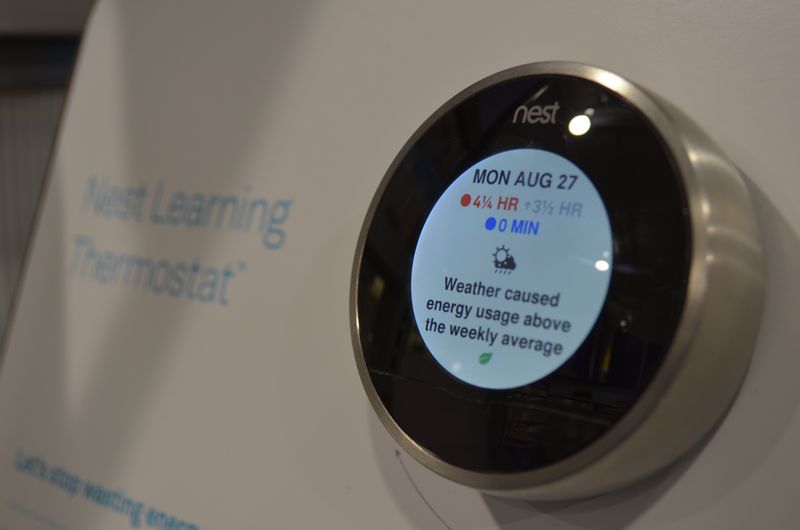
Smart Thermostats and Compatibility: Ensuring a Match with Your HVAC
Upgrade your home’s heating and cooling system with our smart thermostats to achieve maximum comfort and energy savings. Our innovative thermostats are designed to perfectly match your HVAC system, ensuring seamless integration and optimal performance.
Why choose our smart thermostats?
1. Intelligent features: Our thermostats are equipped with advanced sensors and algorithms that learn your preferences and adjust the temperature accordingly, maximizing comfort while minimizing energy consumption.
2. Easy installation: Our smart thermostats are designed for hassle-free installation and compatibility with a wide range of HVAC systems. Whether you have a traditional furnace or a modern heat pump, our thermostats can seamlessly integrate.
3. Energy savings: By utilizing smart algorithms and remote control capabilities, our thermostats help you save money on your energy bills. Adjust the temperature from anywhere using your smartphone or set up automated schedules to optimize energy usage.
4. Smart home integration: Our thermostats can be linked to popular smart home platforms like Amazon Alexa and Google Assistant, allowing you to control your HVAC system with voice commands or through automation routines.
When it comes to choosing a thermostat for your HVAC system, compatibility is key. Our smart thermostats are engineered to work seamlessly with a variety of heating and cooling systems, ensuring a perfect match for your home’s unique needs. Upgrade to a smart thermostat today and experience the future of home comfort and energy efficiency.
Contact us now to find the perfect smart thermostat for your HVAC system!
Importance of Smart Thermostats
Smart thermostats have revolutionized the way we control and manage our HVAC systems. With their advanced technology and compatibility with various heating and cooling systems, they offer numerous benefits that go beyond traditional thermostats.
One of the key advantages of smart thermostats is their ability to connect to your home’s Wi-Fi network. This allows you to control your HVAC system remotely through a smartphone app or a web browser. Whether you’re at work, on vacation, or simply lounging on the couch, you can easily adjust the temperature and settings of your HVAC system, ensuring optimal comfort and energy efficiency.
In addition to remote control, smart thermostats also provide features like programmable schedules and learning capabilities. With a programmable schedule, you can set different temperatures for different times of the day, ensuring comfort when you need it and energy savings when you don’t. Some smart thermostats even have learning capabilities that can analyze your heating and cooling patterns and adjust settings automatically to maximize your comfort and energy efficiency.
Compatibility is another crucial factor when it comes to smart thermostats. They are designed to work with a wide range of heating and cooling systems, including traditional furnaces, heat pumps, and even zoned systems. This compatibility ensures that you can easily find a smart thermostat that will perfectly match your HVAC system, without the need for any additional wiring or modifications.
Overall, smart thermostats are an essential component of a modern home. Their advanced features, remote control capabilities, and compatibility with different HVAC systems make them a smart choice for homeowners looking to improve comfort, energy efficiency, and convenience.
Benefits of Compatibility
When it comes to choosing the perfect thermostat for your HVAC system, compatibility is key. Here are some of the benefits you can expect when you ensure a perfect match:
- Optimal Performance: A compatible thermostat will work seamlessly with your HVAC system, allowing it to operate at its highest efficiency. This means better performance and energy savings.
- Enhanced Features: By choosing a thermostat that is compatible with your HVAC system, you can unlock advanced features and functionality. From smart technology to adaptive programming, these features can enhance your overall comfort and convenience.
- Easier Installation: When your thermostat is compatible with your HVAC system, the installation process becomes much simpler. There’s no need to worry about complex wiring or compatibility issues, saving you time and frustration.
- Improved Energy Efficiency: A compatible thermostat can help you save on energy costs by optimizing your HVAC system’s performance. By properly controlling your heating and cooling, you can reduce energy waste and lower your utility bills.
- Seamless Integration: When your thermostat and HVAC system are perfectly compatible, they can seamlessly integrate with each other. This means you can control your HVAC system remotely, receive real-time notifications, and enjoy a seamless user experience.
Don’t underestimate the importance of compatibility when choosing a thermostat for your HVAC system. By ensuring a perfect match, you can experience all of these benefits and more.
Understanding HVAC Systems
When it comes to selecting a smart thermostat for your home, it’s crucial to have a good understanding of your HVAC system. HVAC stands for Heating, Ventilation, and Air Conditioning, and it refers to the equipment and technology used to regulate the temperature and air quality in a building.
Smart thermostats are designed to work seamlessly with your HVAC system, providing you with enhanced control and efficiency. However, not all HVAC systems are compatible with every smart thermostat on the market. In order to ensure a perfect match, it’s important to understand the different types of HVAC systems and their compatibility requirements.
| Forced Air | Compatible with most smart thermostats |
| Radiant Heating | May require additional equipment or compatibility checks |
| Heat Pump | Requires a specific type of smart thermostat designed for heat pumps |
| Geothermal | May require a specialized smart thermostat for geothermal systems |
| Zoned Systems | Compatible with most smart thermostats, but may require additional sensors or controls |
By understanding your HVAC system and its compatibility requirements, you can make an informed decision when choosing a smart thermostat. This will ensure that you get all the benefits of a smart thermostat while enjoying a perfect match that provides optimal comfort, energy efficiency, and control over your home’s heating and cooling system.
Types of HVAC Systems
When it comes to choosing the right smart thermostat for your HVAC system, it’s important to understand the different types of HVAC systems that are compatible with these devices. Here are the most common types:
- Single-stage HVAC systems: These systems have one setting for heating or cooling and are the most basic type of HVAC system. Smart thermostats are generally compatible with single-stage systems.
- Multi-stage HVAC systems: These systems have multiple settings for heating or cooling, which can provide more precise temperature control and energy efficiency. Smart thermostats are often compatible with multi-stage systems, but it’s important to check the thermostat’s compatibility before purchasing.
- Heat pump HVAC systems: Heat pump systems are used for both heating and cooling and can be more energy efficient than traditional heating and cooling systems. Smart thermostats are typically compatible with heat pump systems.
- Zoned HVAC systems: In zoned systems, different areas of a building can be heated or cooled independently. This allows for greater control over energy usage and temperature preferences. Some smart thermostats offer compatibility with zoned HVAC systems.
Before purchasing a smart thermostat, it’s essential to check its compatibility with your specific HVAC system. This will ensure a perfect match and allow you to enjoy the benefits of a smart thermostat, such as energy savings and convenient temperature control.
Choosing the Right HVAC System
When it comes to choosing the right HVAC system for your home, there are a few key factors to consider. One of the most important considerations is the compatibility with smart thermostats. Smart thermostats have become increasingly popular in recent years due to their ability to make your home more comfortable and energy-efficient.
Before purchasing an HVAC system, it’s essential to check if it is compatible with smart thermostats. Smart thermostats can provide advanced features such as remote control, scheduling, and energy usage tracking. They can also integrate with other smart devices in your home, allowing you to control your HVAC system with voice commands or via smartphone apps.
Another factor to consider when choosing an HVAC system is its energy efficiency. Energy-efficient HVAC systems can help you save money on your energy bills while reducing your carbon footprint. Look for systems with high SEER (Seasonal Energy Efficiency Ratio) ratings and Energy Star certifications to ensure optimal efficiency.
Size is another critical factor to consider. An HVAC system that is too small may not be able to adequately cool or heat your home, leading to discomfort and inefficiency. On the other hand, an oversized system may cycle on and off frequently, which can shorten its lifespan and increase your energy costs.
Finally, don’t forget about the importance of proper installation. Even if you choose the right HVAC system, a poor installation can lead to performance issues and reduce its lifespan. Hire a professional HVAC technician with experience in installing the specific system you’ve chosen to ensure a proper setup.
| Compatibility with smart thermostats | Advanced features, convenience, and energy savings |
| Energy efficiency | Savings on energy bills and reduced environmental impact |
| Correct size | Optimal comfort and energy efficiency |
| Proper installation | Performance optimization and extended lifespan |
Compatibility Factors
When it comes to finding the perfect smart thermostat for your HVAC system, compatibility is essential. Ensuring a harmonious match between your thermostat and HVAC system is crucial to achieving optimal performance and energy savings. Here are some compatibility factors to consider:
| Wiring Compatibility | Check if the smart thermostat is compatible with the existing wiring in your HVAC system. Some thermostats require specific wiring configurations, so it’s important to verify compatibility. |
| System Compatibility | Make sure the smart thermostat is compatible with your specific HVAC system. Different systems, such as heat pumps or multi-stage systems, may require specific thermostat features or settings. |
| Communication Technology | Consider the communication technology used by the smart thermostat. Some thermostats use Wi-Fi, while others utilize Zigbee or Z-Wave. Ensure that the thermostat’s communication technology aligns with your preferences and existing smart home devices. |
| Voltage Compatibility | Verify the voltage compatibility between your HVAC system and the smart thermostat. Different systems operate at varying voltages, so it’s crucial to choose a thermostat that supports your system’s voltage requirements. |
| App Compatibility | Check if the smart thermostat is compatible with the mobile app or smart home platform you plan to use. Having seamless integration with your preferred app or platform can enhance your overall smart home experience. |
By considering these compatibility factors, you can ensure a perfect match between your HVAC system and smart thermostat, bringing you enhanced control, energy savings, and comfort.
Communication Protocols
When it comes to finding the perfect match between smart thermostats and your HVAC system, compatibility is key. To ensure smooth operation and seamless integration, smart thermostats and HVAC systems need to communicate effectively using the right communication protocols.
Communication protocols are sets of rules or standards that define how devices exchange information. In the world of smart thermostats and HVAC systems, there are several commonly used communication protocols:
1. Wi-Fi: Wi-Fi is one of the most popular communication protocols for smart thermostats. It allows for wireless communication between the thermostat and your home network, enabling you to control your HVAC system from anywhere using your smartphone or computer.
2. Zigbee: Zigbee is a low-power wireless communication protocol that is commonly used in smart home devices, including thermostats. It creates a mesh network, allowing devices to communicate with each other and extend the range of the network.
3. Z-Wave: Z-Wave is another wireless communication protocol that is often used in smart thermostats and other home automation devices. It operates on a different frequency than Wi-Fi and Zigbee, enabling it to avoid interference and provide a more reliable connection.
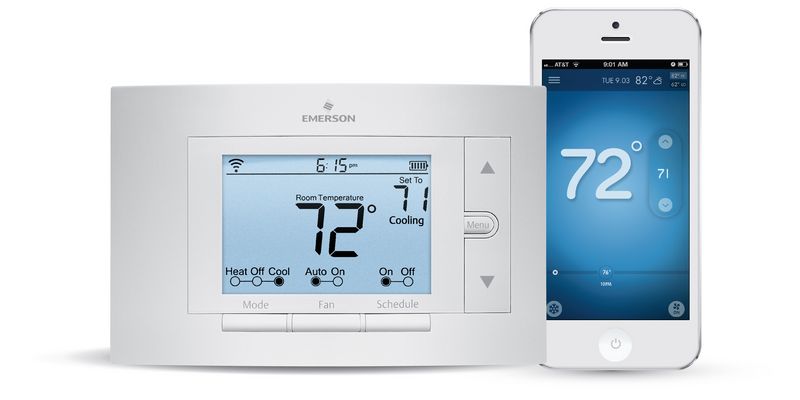
4. Bluetooth: Bluetooth is a short-range wireless communication protocol that is commonly used for connecting devices like smartphones and tablets to other devices, including smart thermostats. It allows for direct communication between the thermostat and your mobile device.
5. Thread: Thread is a relatively new communication protocol that is designed specifically for smart home devices. It is based on low-power wireless technology and provides secure and reliable communication between devices.
When choosing a smart thermostat, it is important to consider the communication protocol that is compatible with your HVAC system. Not all thermostats support all protocols, so be sure to check the compatibility requirements before making a purchase. By ensuring a perfect match between your smart thermostat and your HVAC system’s communication protocol, you can enjoy the full benefits of a smart and energy-efficient home.
Wiring Compatibility
When it comes to smart thermostats, ensuring compatibility with your HVAC system is crucial. The wiring in your home plays a key role in connecting your thermostat to your HVAC system, allowing them to communicate and work together seamlessly.
Smart thermostats come with different wiring requirements, so it’s important to match the wiring compatibility of your existing HVAC system with the thermostat you choose. This will ensure that the two components can be properly connected and function effectively.
Most modern HVAC systems are compatible with smart thermostats, but it’s always recommended to check the compatibility before making a purchase. Some thermostats require a C-wire, or common wire, for power, while others can work with the existing wiring setup. Checking the compatibility will save you from any installation headaches or compatibility issues down the line.
It’s also worth noting that some older HVAC systems may not be compatible with smart thermostats. If your HVAC system is outdated, it may not have the necessary wiring or technology to support the advanced features of smart thermostats. In such cases, upgrading your HVAC system may be necessary to fully enjoy the benefits of a smart thermostat.
Overall, matching the wiring compatibility of your HVAC system with a smart thermostat is essential for a perfect match. It ensures a smooth installation process and allows you to take advantage of all the energy-saving and convenience features that smart thermostats have to offer.
Ensuring a Perfect Match
When it comes to your HVAC system, finding the perfect match with your smart thermostat is crucial. Having a compatible thermostat can greatly enhance the performance and efficiency of your heating and cooling system.
Smart thermostats are designed to work seamlessly with a wide range of HVAC systems, but it’s important to ensure compatibility before making a purchase. The first step is to check the specifications of your HVAC system and compare them with the requirements of the smart thermostat you’re interested in.
Compatibility can vary based on factors such as wiring, voltage, and the type of HVAC system you have. Some smart thermostats are only compatible with certain types of HVAC systems, such as central air conditioning or heat pump systems. Others may work with a wider range of systems, including multi-stage or zoned systems.
Once you’ve identified a thermostat that is compatible with your HVAC system, it’s important to consider additional features and functionality. Smart thermostats offer a range of advanced features, such as remote control, programmable schedules, and energy-saving algorithms. Choosing a thermostat that offers the right combination of features for your needs will ensure a perfect match.
Installing a smart thermostat that is compatible with your HVAC system can provide a host of benefits. Not only can it help you save on energy costs, but it can also improve your comfort and convenience. With the ability to control your thermostat remotely, you can adjust the temperature of your home from anywhere, ensuring optimal comfort when you arrive.
In conclusion, ensuring a perfect match between your HVAC system and your smart thermostat is essential for maximizing efficiency and performance. By doing your research and choosing a thermostat that is compatible with your system, you can enjoy all the benefits that smart thermostats have to offer.
Research and Compatibility Testing
Choosing the right smart thermostat for your HVAC system is crucial to ensure optimal performance and energy efficiency. With so many options available on the market, it’s important to do your research and perform compatibility testing to find the perfect match.
When it comes to compatibility, not all thermostats are created equal. Different HVAC systems have different specifications and requirements, so it’s essential to find a smart thermostat that is specifically designed to work with your particular system.
One way to ensure compatibility is to consult the manufacturer’s website or product manual for information on compatible models. They often provide a list of HVAC systems that their thermostats are compatible with. Be sure to check if your specific make and model is included on the list.
Another useful resource is online forums and user communities, where you can find discussions and recommendations from other HVAC owners who have already tested different thermostats with their systems. This firsthand knowledge can be invaluable in determining which thermostats are likely to be compatible with your HVAC.
Lastly, compatibility testing is an essential step in the process. Once you have narrowed down your options based on research and recommendations, it’s time to test the compatibility of the thermostats with your HVAC system. This can involve checking the wiring compatibility, voltage compatibility, and any additional features or functions that may be necessary for your system.
A convenient way to perform compatibility testing is by consulting with an HVAC professional. They have the expertise and knowledge to assess compatibility accurately and recommend the best smart thermostat for your system. They can also help with the installation process and ensure that everything is set up correctly.
| Check manufacturer’s website or product manual for compatibility information |
| Research online forums and user communities for recommendations |
| Consult with an HVAC professional for expert advice |
| Perform wiring, voltage, and feature compatibility checks |
By conducting thorough research and compatibility testing, you can ensure that you find the perfect match between your HVAC system and smart thermostats. This will not only optimize the performance and energy efficiency of your system but also provide you with convenient and intelligent control over your home’s heating and cooling.
Consultation with HVAC Professionals
When it comes to finding the perfect match and ensuring compatibility between your HVAC system and smart thermostats, it is always a good idea to consult with HVAC professionals. These experts have extensive knowledge and experience in the field and can provide valuable insights and recommendations.
During a consultation, HVAC professionals will assess your current HVAC system and determine its compatibility with smart thermostats. They will take into account factors such as the type of HVAC system you have, its age, and any potential limitations or requirements.
Based on their assessment, HVAC professionals can recommend the most suitable smart thermostat options that will seamlessly integrate with your HVAC system. They will provide you with detailed information about the features and benefits of different smart thermostats and help you make an informed decision.
Additionally, HVAC professionals can offer guidance on the installation process and any additional equipment or modifications that may be needed. They can also provide ongoing support and assistance, ensuring that your smart thermostat functions optimally and efficiently.
Consulting with HVAC professionals is crucial for ensuring a perfect match and compatibility between your HVAC system and smart thermostats. Their expertise will help you avoid compatibility issues and make the most of your investment in a smart thermostat.
Popular Smart Thermostat Brands
When it comes to compatibility between smart thermostats and HVAC systems, there are several brands that stand out for their reliability and performance. These popular smart thermostat brands offer a wide range of features to ensure a perfect match with your HVAC system.
| 1. Nest |
The Nest Learning Thermostat is one of the most popular choices among homeowners. It uses advanced algorithms to learn your schedule and preferences, allowing it to automatically adjust the temperature in your home. |
| 2. Ecobee |
Ecobee is known for its innovative smart thermostats that offer features such as room sensors for enhanced temperature control and energy savings. Their thermostats are compatible with most HVAC systems and can be controlled through an app. |
| 3. Honeywell |
Honeywell has a long history of producing reliable HVAC systems, and their smart thermostats are no exception. They offer a range of models to suit different needs and budgets, and their thermostats can be easily integrated with your existing HVAC system. |
| 4. Emerson |
Emerson smart thermostats are designed to provide precise temperature control and energy savings. They offer features such as geofencing and voice control, and their thermostats are compatible with a wide range of HVAC systems. |
These are just a few examples of popular smart thermostat brands that provide excellent compatibility with HVAC systems. When choosing a smart thermostat, it’s important to consider factors such as compatibility, features, and ease of use to ensure a perfect match with your HVAC system.
Compatibility Information by Brand
When it comes to choosing the right thermostat for your HVAC system, compatibility is key. Smart thermostats offer a range of features and benefits, but not all of them are compatible with every HVAC system. Here is some compatibility information for popular thermostat brands:
| Brand A | Compatible with most HVAC systems, including gas, electric, and oil |
| Brand B | Compatible with HVAC systems that have a 24VAC “C” wire |
| Brand C | Compatible with multi-zone HVAC systems |
| Brand D | Compatible with HVAC systems that use 120V or 240V |
| Brand E | Compatible with HVAC systems that have a heat pump |
It is important to check the compatibility of the smart thermostat with your HVAC system before making a purchase. Consult the manufacturer’s specifications or reach out to a qualified HVAC professional for assistance. By ensuring a perfect match between your thermostat and HVAC system, you can enjoy all the benefits of a smart thermostat without any compatibility issues.
User Reviews and Experiences
Smart thermostats have revolutionized the way we control our HVAC systems, providing convenience, energy savings, and a new level of comfort. But how do they actually perform in real-life situations? Let’s take a look at some user reviews and experiences to find out.
Jennifer D.:
After recently upgrading my HVAC system, I decided to invest in a smart thermostat to maximize its efficiency. I chose a model that was compatible with my HVAC and was amazed at how well it matched with my system. The installation was a breeze, and the compatibility ensured that I could easily control my heating and cooling from my smartphone. It’s been a game-changer for me and I couldn’t be happier.
Mark T.:
I’ve had a smart thermostat for a few years now, and I can’t imagine going back to a traditional thermostat. The compatibility between my HVAC system and the smart thermostat has saved me a significant amount of money on my energy bills. It automatically adjusts the temperature based on my preferences and the weather conditions, so I never have to worry about wasting energy. Plus, the ability to control it remotely is a huge bonus.
Sarah L.:
When it comes to compatibility, my smart thermostat exceeded my expectations. I was concerned that it wouldn’t work with my older HVAC system, but it integrated seamlessly. The thermostat’s user-friendly interface made it easy for me to set up schedules and adjust the temperature to my liking. I love how it adapts to my habits and helps maintain a comfortable environment in my home.
Mike S.:
I initially purchased a smart thermostat because I wanted to have more control over my HVAC system, but the compatibility aspect has been a pleasant surprise. My smart thermostat not only works perfectly with my HVAC system but also integrates with other smart devices in my home. I can sync it with my voice-controlled virtual assistant and control the temperature with simple voice commands. It’s made my life so much easier and more efficient.
These user reviews and experiences highlight the importance of compatibility when choosing a smart thermostat for your HVAC system. It ensures a perfect match, seamless integration, and optimal performance. Don’t miss out on the benefits of smart thermostats and their compatibility with your HVAC.
Q&A:
Is this smart thermostat compatible with my HVAC system?
Our smart thermostat is designed to be compatible with a wide range of HVAC systems. However, it is always recommended to check the compatibility of your specific system with the smart thermostat before making a purchase. You can find a list of compatible systems on our website or contact our customer support for assistance.
How do I know if my HVAC system is compatible with this smart thermostat?
To determine if your HVAC system is compatible with our smart thermostat, you can check the specifications of your system or consult the documentation provided by the manufacturer. Additionally, you can contact our customer support with the details of your HVAC system, and they will be able to assist you in determining compatibility.
What types of HVAC systems are not compatible with this smart thermostat?
While our smart thermostat is designed to be compatible with a wide range of HVAC systems, there may be certain older or specialized systems that are not compatible. These include systems that do not have a C-wire or those that use proprietary communication protocols. It is always recommended to check the compatibility requirements before purchasing.
What happens if I install this smart thermostat with an incompatible HVAC system?
If you install our smart thermostat with an incompatible HVAC system, it may not function properly or at all. In some cases, it can cause damage to the thermostat or the HVAC system. It is important to ensure compatibility before installation, and if you are unsure, it is recommended to consult a professional HVAC technician.

